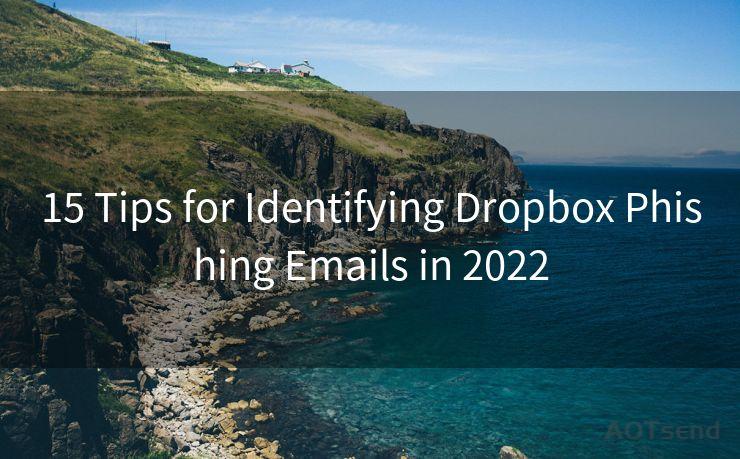15 Tips for Identifying Dropbox Phishing Emails in 2022




In the digital age, phishing emails have become a common occurrence, and Dropbox users are not immune to these scams. To protect yourself from falling victim to these fraudulent emails, here are 15 tips to help you identify Dropbox phishing emails in 2022.
1. Check the Sender's Email Address
Always verify the sender's email address. Dropbox emails typically come from an official Dropbox domain. If the email is from a suspicious or unrecognized domain, it's likely a phishing attempt.
2. Look for Spelling and Grammatical Errors
Phishing emails often contain spelling and grammatical errors. If you spot any such mistakes in an email claiming to be from Dropbox, it's a red flag.
3. Be Wary of Urgent Language
Phishers often use urgent language to pressure you into action. If an email demands immediate action or threatens account suspension, proceed with caution.
4. Don't Click Suspicious Links
Never click on links in emails that seem suspicious. Hover over links to check their destination URL before clicking. If it doesn't lead to an official Dropbox domain, avoid clicking.
5. Verify the Email Content
If the email contains information that doesn't match your Dropbox account details or activity, it's likely a phishing attempt.
6. Beware of Attachments
Be cautious of emails with attachments, especially if they come from an unknown sender. Phishing emails often contain malicious attachments that can infect your system.
7. Use Two-Factor Authentication

Enabling two-factor authentication adds an extra layer of security to your Dropbox account, making it harder for phishers to gain access.
8. Contact Dropbox Directly
If you're unsure about an email's authenticity, contact Dropbox customer support directly through their official channels for verification.
9. Keep Your Software Updated
Keeping your operating system, browser, and antivirus software up to date helps protect against phishing attacks.
10. Educate Yourself on Phishing Tactics
Staying informed about the latest phishing tactics can help you recognize and avoid these scams.
11. Use a Secure Email Provider
Using a secure email provider with strong encryption can help protect your emails from being intercepted by phishers.
12. Don't Share Sensitive Information
Never share sensitive information, such as passwords or credit card details, in response to an unsolicited email.
🔔🔔🔔
【AOTsend Email API】:AOTsend is a Managed Email Service for sending transactional emails. Support Email Types: reminders, authentication, confirmations, notifications, verification codes, invoices, password resets, account activations, billing statements, two-factor authentication (2FA), and one-time passwords (OTP) emails, etc. $0.28 per 1000 Emails. 99% Delivery, 98% Inbox Rate.
You might be interested in:
Why did we start the AOTsend project, Brand Story?
What is a Managed Email API, How it Works?
Best 25+ Email Marketing Platforms (Authority,Keywords&Traffic Comparison)
Best 24+ Email Marketing Service (Price, Pros&Cons Comparison)
Email APIs vs SMTP: How they Works, Any Difference?
13. Report Phishing Emails
If you receive a phishing email, report it to Dropbox and your email provider to help them shut down these scams.
14. Use a Password Manager
A password manager can help you create and store complex, unique passwords for each account, making it harder for phishers to guess or crack.
15. Stay Vigilant
The key to avoiding phishing scams is to remain vigilant and skeptical of any unsolicited emails, even if they appear to come from a trusted source like Dropbox.
By following these tips, you can protect yourself from Dropbox phishing emails in 2022 and beyond. Remember, security is everyone's responsibility, so stay alert and don't fall victim to these fraudulent schemes.




Scan the QR code to access on your mobile device.
Copyright notice: This article is published by AotSend. Reproduction requires attribution.
Article Link:https://www.mailwot.com/p1872.html



